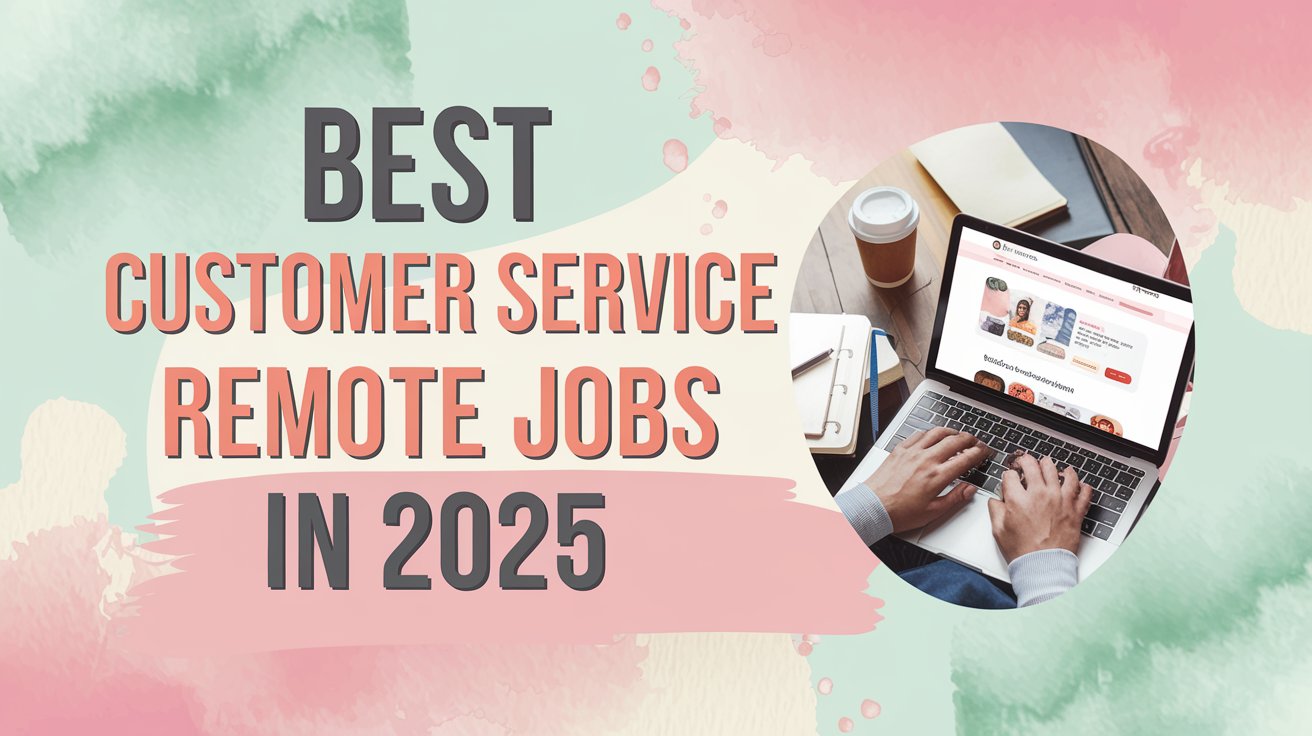Are you looking for a remote job in customer service? Look no further than customer service remote jobs! Whether you prefer to work from home or from any location in the world, there are numerous remote customer service jobs available to suit your needs.
Key Takeaways:
- Customer service remote jobs offer the flexibility to work from home or anywhere in the world.
- There are a variety of remote customer service jobs available for job seekers.
- The demand for remote customer service professionals is growing.
- Remote customer service jobs often come with excellent benefits and growth opportunities.
- Many top companies are hiring for remote customer service roles.
Read More About Working from Home:
The Benefits of Customer Service Remote Jobs
Virtual customer service jobs, online customer service jobs, and remote customer support jobs all provide numerous benefits that make them attractive career options. Here are just a few of the advantages:
Flexibility: Working remotely allows for greater flexibility in terms of scheduling and location. You can work from the comfort of your own home or even while traveling. Many virtual customer service jobs offer flexible hours, making it easier to balance work with other responsibilities.
Cost Savings: Working remotely can save you money on commuting, work attire, and other expenses associated with traditional office jobs. This can help you make the most of your earnings.
Greater Opportunities: Remote customer service jobs offer greater opportunities to work with a variety of customers and industries. You can work with clients from around the world, expanding your knowledge and skills.
Increased Job Satisfaction: Remote customer service jobs often allow for greater autonomy and independence, leading to increased job satisfaction. Plus, the ability to work from home can lead to reduced stress and a better work-life balance.
If you are interested in pursuing a remote customer service job, consider the benefits above and start exploring your options for virtual customer service jobs, online customer service jobs, and remote customer support jobs.

Companies Hiring for Remote Customer Service Roles
Remote customer care jobs, customer service work from home positions, and remote call center jobs are in high demand. Here are some of the top companies currently hiring for remote customer service representatives:
Access hand-screened remote jobs on FlexJobs, the #1 site for remote, work-from-home, and flexible jobs since 2007. FlexJobs has membership options between 1 week to 1 year. All come with a satisfaction guarantee. Find out what every subscription can give you today!
| Company Name | Description |
|---|---|
| Amazon | Amazon offers a variety of remote customer service roles, including customer service associates and technical support representatives. |
| Apple | Apple hires At-Home Advisors to provide customer support for their various products and services. |
| Concentrix | Concentrix offers positions such as customer service representatives, technical support advisors, and customer care specialists. |
| Liveops | Liveops is a call center company that hires remote customer service agents to work on a variety of projects and campaigns. |
| Sitel | Sitel hires work-from-home customer service professionals to assist clients with a variety of needs. |
These are just a few examples of companies that offer remote customer service jobs. Keep in mind that job opportunities are constantly changing, so it’s important to regularly search for new openings.
Skills Required for Remote Customer Service Jobs
Remote customer service representative jobs require a unique set of skills and qualifications. While some skills may overlap with traditional in-office customer service roles, others are specific to working remotely. Here are some essential skills for success as a remote customer service professional:
- Excellent communication skills: As a remote customer service representative, clear and effective communication is crucial. You need to be able to explain complex issues to customers efficiently and effectively.
- Patience and empathy: Customers may reach out when they are unhappy or frustrated, and it is essential to approach each interaction with patience and empathy.
- Problem-solving skills: Successful remote customer service representatives are skilled in identifying and resolving issues in a timely and effective manner.
- Self-motivation: Working remotely requires the ability to manage your time and stay motivated without constant supervision.
- Technical proficiency: Strong computer and technical skills are essential for remote customer service jobs, as you will need to navigate various software and tools to complete your work.
Additionally, some companies may require specific qualifications or certifications, such as fluency in a second language or experience in a particular industry. Be sure to review job postings carefully for any specific requirements.
Tips for Finding Remote Customer Service Jobs
Remote customer service jobs can be highly competitive, so it’s essential to take the right steps to find the perfect fit for you. Here are a few tips to help you in your search:
- Research companies: Look for companies that hire remote customer service representatives and check out their websites to learn more about their requirements and application processes.
- Network: Reach out to your network and let people know you are looking for remote customer service positions. You never know who may have a lead or connection that could help you land a job.
- Check job boards: There are many job boards, such as Indeed, FlexJobs, and Remote.co, that specialize in remote work opportunities. Set up job alerts to receive notifications when new positions become available.
- Polish your resume and cover letter: Tailor your resume and cover letter specifically for remote customer service roles. Highlight any relevant experience or skills that make you stand out as a remote worker.
- Prepare for virtual interviews: Many companies conduct virtual interviews for remote positions. Make sure your internet connection is stable, dress professionally, and prepare for common interview questions.
By following these tips, you can increase your chances of finding and securing the remote customer service job that’s right for you.
Remote Customer Service Tools and Technologies
Remote customer service jobs require the use of certain tools and technologies to effectively communicate and provide support to customers. Here are some of the common tools and technologies used in remote customer service roles:
| Tool/Technology | Purpose/Function |
|---|---|
| Customer Relationship Management (CRM) software | Used to manage customer interactions, log inquiries, and track issue resolution progress |
| Live chat software | Allows for real-time communication with customers to resolve their issues quickly and efficiently |
| Video conferencing software | Enables remote customer service representatives to conduct face-to-face interactions with customers and provide personalized support |
| VoIP (Voice over Internet Protocol) systems | Used for remote call center operations, allowing customer service representatives to make and receive calls through the internet |
Additionally, remote customer service professionals may use project management tools, such as Trello or Asana, to manage their workflow and prioritize tasks. Communication tools, such as Slack or Microsoft Teams, are also used to stay connected with colleagues and team members.
It’s important for remote customer service representatives to not only be proficient in these tools and technologies, but also be able to troubleshoot technical issues that may arise during customer interactions.
Challenges and Solutions for Remote Customer Service Professionals
Working remotely in customer service can present unique challenges. One of the biggest challenges is maintaining effective communication with customers and colleagues when you’re not in the same physical location. Miscommunications can occur due to technical difficulties or language barriers, which can lead to frustration for both the customer and the remote worker.
Another challenge is staying motivated and focused when you’re working from home. Without the structure of a traditional office setting, distractions can easily creep in and productivity can suffer. It’s important for remote customer service professionals to establish a routine and workspace that fosters concentration and focus.
One solution to communication challenges is to utilize video conferencing tools to have face-to-face interactions with customers and colleagues. This can help build rapport and establish a personal connection, which can be difficult to achieve solely through email or chat.
Another solution is to establish clear expectations and guidelines for communication and response time. This can help prevent misunderstandings and ensure that customers receive timely responses to their inquiries.
To combat distractions and stay productive, remote customer service professionals can establish a designated workspace and schedule, and eliminate external distractions such as social media and television during work hours. Taking breaks and setting small achievable goals throughout the day can also help maintain motivation and productivity.
Remote Customer Service Career Growth Opportunities
Remote customer service jobs offer many opportunities for advancement and career growth. Whether you are starting out as a remote customer service representative or have been in the field for a while, there are several paths you can take to further your career.
Management Positions: Remote customer service teams require management, just like in-person teams. If you have experience in leadership or have demonstrated strong leadership potential, you can work towards becoming a remote customer service manager. This role typically involves overseeing a team of remote customer service representatives, ensuring quality service and productivity, and implementing strategies to enhance the customer experience.
Specialization: Within the remote customer service field, there are many specialized roles to consider. For example, you could specialize in technical support, sales, or customer retention. Specializing in a specific area can provide the opportunity to work with more complex issues and challenges, which can lead to higher pay and more responsibility.
Mentorship and Training: If you are a seasoned remote customer service representative, you may have the opportunity to mentor new hires or help with training programs. This role involves sharing your knowledge and experience with others, ensuring that new hires are equipped to succeed in their roles, and implementing new processes and strategies to improve the overall customer service experience for the company.
Consulting: After gaining years of experience in remote customer service, you may be able to work as a consultant. Consulting involves advising companies on how to improve their customer service processes and strategies to enhance customer satisfaction and retention rates.
Remember, to achieve career growth in remote customer service, it’s essential to continue learning, adapting to new technologies and processes, and demonstrating your skills and expertise to your employer.
Conclusion
Remote customer service jobs offer a wealth of opportunities for those seeking flexibility, convenience, and a fulfilling career. Whether you’re just starting out or looking to take your career to the next level, there are numerous opportunities for remote customer service roles.
With the right skills, tools, and mindset, you can excel in a remote customer service position. Keep in mind the tips we’ve provided for finding and securing remote customer service jobs, as well as the challenges and solutions for remote work.
Remember, remote customer service work can be rewarding and offer excellent career growth opportunities, whether you’re interested in management or other leadership roles. Continue to hone your skills, stay up-to-date on the latest technologies and trends in the industry, and always be willing to learn and grow.
Thank you for exploring the world of customer service remote jobs with us! We hope you find your perfect fit in this dynamic and exciting field.
FAQ
What are remote customer service jobs?
Remote customer service jobs are positions in which individuals provide customer support and assistance remotely, typically from their own homes or off-site locations. This allows for flexibility and the opportunity to work from anywhere with an internet connection.
What skills are required for remote customer service jobs?
Some key skills required for remote customer service jobs include excellent communication and problem-solving abilities, patience, empathy, and the ability to handle customer inquiries and complaints effectively. Basic computer skills and the ability to effectively utilize customer service software and platforms are also essential.
How can I find remote customer service jobs?
There are several ways to find remote customer service jobs. You can search for job listings on reputable job boards and company websites, network with professionals in the industry, and utilize online platforms that specifically cater to remote job opportunities. It’s also important to customize your resume and cover letter to highlight your relevant experience and skills.
What are some common tools and technologies used in remote customer service jobs?
Remote customer service professionals often use tools and technologies such as customer service software, virtual communication platforms, email management systems, and knowledge bases. These resources help streamline communication and provide efficient support to customers.
What are some challenges faced by remote customer service professionals?
Remote customer service professionals may face challenges such as maintaining work-life balance, dealing with technical difficulties, and staying motivated without direct supervision. Collaborating with team members and managing customer expectations can also present unique challenges in a remote setting.
How can I advance in my remote customer service career?
To advance in your remote customer service career, it’s important to continually develop your skills, seek new learning opportunities, and demonstrate your dedication to providing excellent customer support. Building strong relationships with colleagues and supervisors, taking on additional responsibilities, and seeking out professional growth opportunities can also help you progress in your career.









